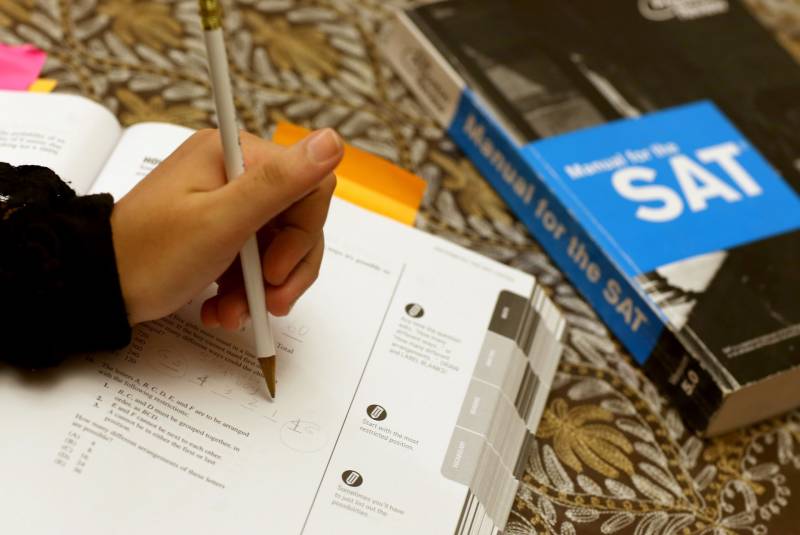Weighing in on a charged debate that could influence college admissions across the country, a University of California faculty task force recommended Monday that the university continue requiring applicants to submit SAT or ACT scores, but work to develop its own admissions test.
Though not the university’s final decision on the subject, the recommendations are a blow to critics who say the tests discriminate against low-income students and underrepresented minorities. And they are a boon to the test administrators, the College Board and ACT Inc., which offered the exams to more than 100,000 students who applied to UC last year.
The faculty committee’s report follows months of speculation about whether UC might make it optional for applicants to submit SAT or ACT scores — as more than 1,000 colleges have done — or replace them with the Smarter Balanced tests that all California 11th-graders take. The task force rejected both options.
Instead, the faculty group recommended the university keep the test requirement in place while it creates its own exam, a process it estimated could take nine years.
While the report acknowledges that black, Latino and Native American students are underrepresented on UC campuses, and that some of that gap is due to test scores, it found that other systemic problems — such as lower rates of high school graduation and completion of college-prep courses — are bigger factors.
